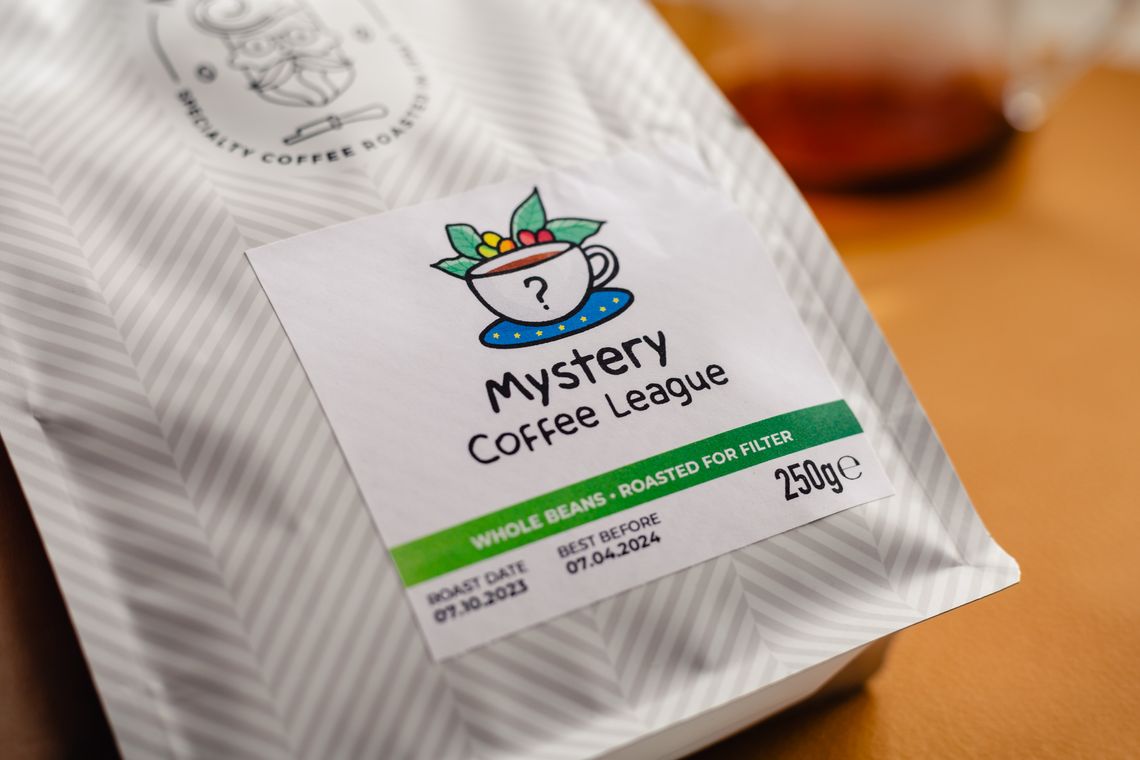Nero Scuro - Italy 🇮🇹
Mystery Coffee


🇪🇹 Ethiopia Alaka Wine
Region: Hambela, Guji
Variety: Heirloom
Processing: Wine Natural
Altitude: 2000+ masl
Tasting notes: blueberry (compote), jasmine, plum
Harvest: 2023
About the coffee:
This coffee comes from the Guji region of Ethiopia, specifically from the Hambela district.
Situated at an impressive altitude exceeding 2000 m above sea level, this area's unique environment fosters exceptional coffee beans. Vibrant young coffee trees, carefully tended by dedicated local producers, resulting in coffee with distinct flavors that delight enthusiasts worldwide. The region's charm lies in the harmonious blend of agriculture and nature, where Cordia Africana, Acacia, and Albizzia trees provide both shade and character to the beans. The soil, a blend of volcanic fertile red soil and deep sandy loam, contributes to the rich nurturing of these coffee trees.
Alaka coffee derives its name from the Alaka kebele, where it's harvested.
The coffee cherries from Alaka kebele, supplied by 120 small holders, are brought to Hambela Alaka washing station in Guji for further processing.
Entrepreneur Abiyot Boru, a dedicated coffee producer, manages the washing station and multiple coffee farms in the area. His commitment to producing high quality lots is evident in the delightful floral and fruity undertones of this coffee.
Since its establishment in 2005, the washing station has remained a consistent emblem of quality under the attentive management of Abiyot Boru, who has successfully guided its operations ever since.
About the processing:
This particular lot has undergone a wine-like process. This process is a variation of the natural process. It involves leaving the cherries on the shrubs to over-ripen before they are harvested. Such cherries have a higher concentration of sugar once they are harvested than those that are plucked at the peak of the harvest. Once the coffee fruit is harvested, it is sun-dried for several days in a cool climate at more than 1,800 m above sea level. During the day, the beans are laid on a surface to dry under sunlight, and then transferred into plastic tubs for storage at night.
While producers repeat the steps above for two weeks to achieve a natural coffee, this extended fermentation process requires 30 – 60 days of the procedure: this is to make sure fermentation takes place within the coffee cherries.
Once the cherries start to resemble raisins, they are then depulped with a depulper machine and then dried until the water level drops (the moisture content) to 12-14%. The final result is a thick and fruity cup profile.
About the selection:
This month was coordinated by Judy and Dawid
Comments by Dawid
Both of us received blind samples from Nero Scuro and Judy made the final selection. Indeed, it was the best coffee from the group, which was also fairly easy to guess for some more experienced people. It is quite unique Ethiopian lot from one of the highest altitudes and with quite unique processing method. I was expecting some boozy notes, but on the cupping table it was very clean. Cleaner than final production roast, but I still didn't find it boozy in any way.
Some variation of Ethiopian coffee was also a good choice to close this era of Mystery Coffee League. As communicated before, this is probably our last 250g Mystery Coffee bag ever.

Coffee of the Month

🇨🇷 Costa Rica Las Lajas
Variety: Paraiso
Processing: Black Honey
Altitude: 1500 - 1700 masl
Tasting notes: red grape, plum, golden kiwi
Harvest: 2023
